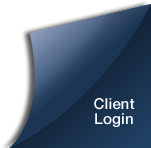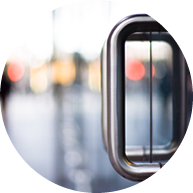June Question and Answer Corner
Newsletter issue - June 2010.
Q. My UK based company has bought additional bandwidth from an internet provider based in the USA. How do I treat this purchase for VAT purposes in the UK?
A. The supply of bandwidth as part of your internet service is an international service for VAT purposes, as the supplier is based outside the UK. As your company is VAT registered you must apply the reverse charge rules to this purchase. This means for VAT purposes you treat the transaction as if you were both the purchaser and the supplier. You charge yourself standard rate VAT on the invoiced cost and claim that VAT back as part of your input VAT for the quarter. The VAT added appears twice in the calculations for your VAT return; as input VAT on purchases and as output VAT on the reverse charge as if the purchase was one of your own sales.
Q. My sales force all need to connect to the internet while they are out on the road, so we provide them each with a mobile phone dongle to provide the internet where and when they need it. Are there any tax implications for my company or the employees?
A. A mobile phone dongle is treated as a piece of computer equipment and not as a mobile phone. Where the company purchases the dongle and pays the subscription charge directly there should be no benefit in kind charge on the employee. This applies if the associated computer has no significant private use, and the private use does not affect the cost of providing the equipment.
Where the employee purchases the dongle and pays the connection charge, which he claims back from the company, the tax situation is more complicated. The employer needs to include the expense paid on the form P11D, and the employee needs to claim a deduction for the costs on his tax return, as reasonable additional costs relating to work. To circumvent this paper chase, the company should apply for the costs of the dongles to be included in a P11D dispensation.
Q. On 1 Feb 2010 I started a self-employed consultancy business, which has generated profits of about £40,000 in the first four months. I also run my own company and let a few properties. The income from my company and the rents has been much lower in 2009/10 compared to the previous year. Do I have to take into account the income from my new consultancy business when I make my payment on account for 2009/10 due on 31 July 2010?
A. You do need to take into account the income from your new consultancy business when making your next payment on account for income tax. However, the opening year rules for self-employment will apply, so only two months of your first period of the consultancy business profits are taxed in 2009/10. You can apply to reduce the 2009/10 payment on account if your total taxable income for the 2009/10 tax year, including the two months of consultancy profits, has dropped below the total taxable income for 2008/09. It doesn't matter if your income for 2010/11 rises again.
 Cookies are small text files that are stored on your computer when you visit a website. They are mainly used as a way of improving the website functionalities or to provide more advanced statistical data.
Cookies are small text files that are stored on your computer when you visit a website. They are mainly used as a way of improving the website functionalities or to provide more advanced statistical data.















